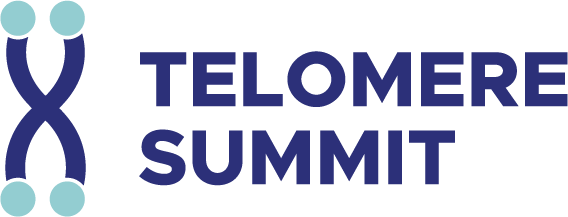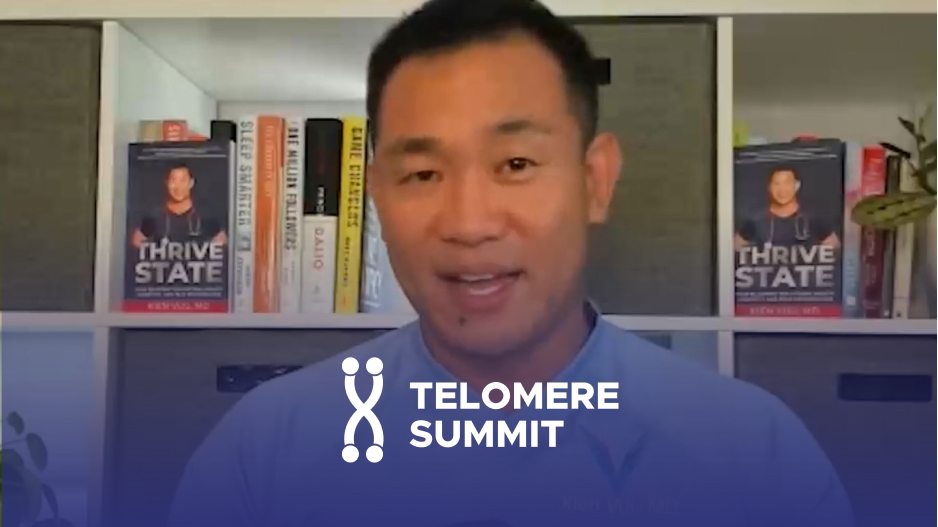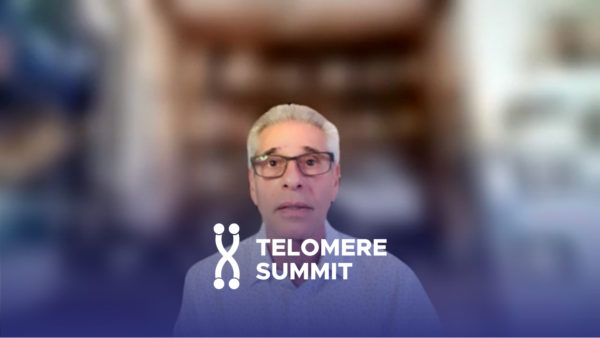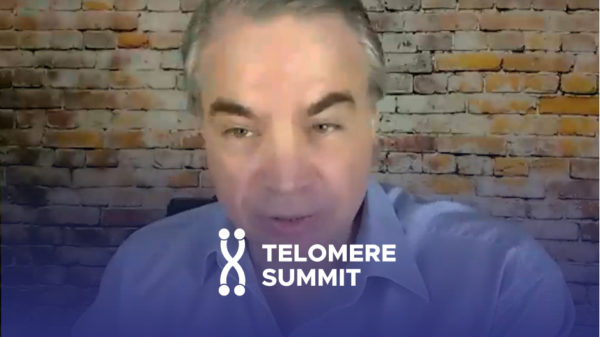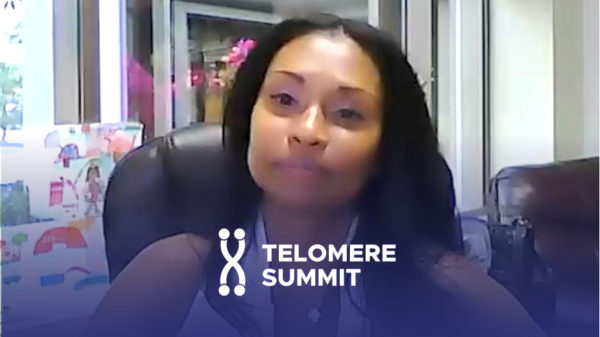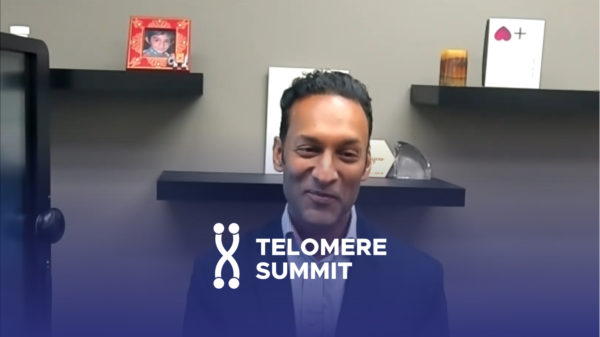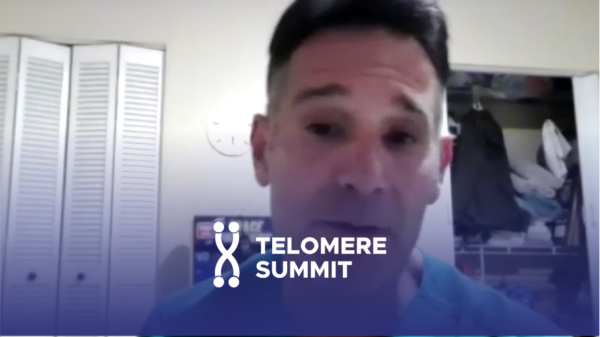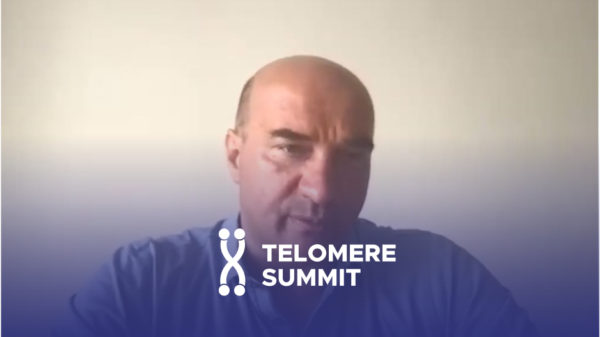Join the discussion below
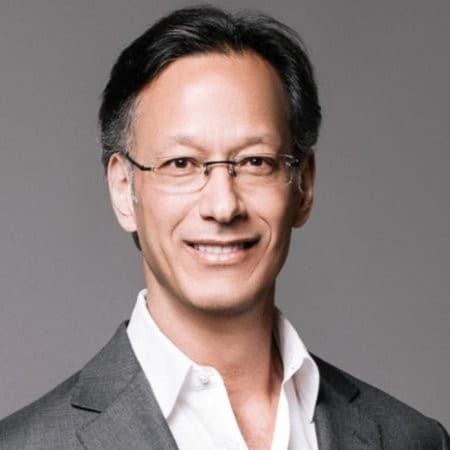
Dr. Raffaele received his B.A. in philosophy from Princeton University and his M.D. from Drexel University Medical School in 1989. He trained at The New York Hospital/Cornell University Medical Center and was formerly a clinical assistant professor of medicine at Dartmouth Medical School. Dr. Raffaele is board certified in internal... Read More
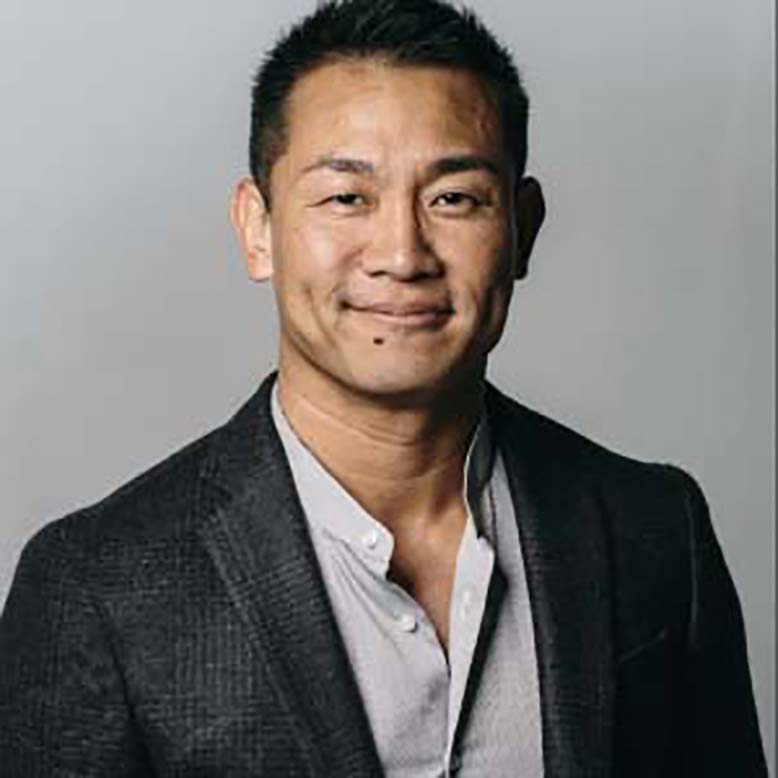
Dr. Kien Vuu is one of the most sought-after anti-aging physicians in the country. At his VuuMD Longevity and Performance Clinic, Dr. Vuu regularly works with celebrities, top corporate executives, and high-functioning professionals to optimize their health, performance, and vitality. He’s also a health media personality, appearing on national TV... Read More
- Ancestral Wisdom/Lifestyle basics are the foundations of health.
- The BioEnergetic Model of Health/Disease explains how our lifestyle choices and epigenome determines the fate of our cellular health, performance, and telomere length/longevity.
- 7 lifestyle pillars to achieve Thrive State & telomere health are sleep, nutrition, movement, stress/emotional mastery, thoughts/mindset,relationships, and purpose.
- Advanced anti-aging technologies which I use in my clinic (exosomes, nad ivs, hormone optimization) are just band-aids without first optimizing our bioenergetic state.
Joseph M. Raffaele, M.D.
Dr. Kien Vuu is one of the most sought after anti-aging physicians in the country. At his Vuu MD Longevity and Performance Clinic, Dr. Vuu regularly works with celebrities, top corporate executives and high functioning professionals to optimize their health, performance, and vitality. He’s also a health media personality, appearing on national TV shows such as “The Doctors” and “Access Hollywood” and helps to train the next generation of physicians as Assistant Professor of Health Sciences at UCLA. As someone who has overcome two chronic diseases himself, Dr. Vuu is passionate about empowering people to reclaim their health and live with fulfillment, abundance and purpose. Well, it’s great to have you on, Kien. I’m looking forward to hearing a lot about where you are in your practice. I know it’s been a little while since we’ve talked about things. I think last time was at A4M.
Kien Vuu, M.D.
Yup.
Joseph M. Raffaele, M.D.
But you’ve got some fantastic stuff. The new book, “Thrive State”, out. But I wanna take a step back first and talk a little bit about your journey to getting to being where you are right now in medicine. You started out as an interventional radiologist, but even before then, you have a pretty interesting story of coming to America. Why don’t you tell us about that.
Kien Vuu, M.D.
Yeah, certainly. Well, really this is my health discovery story, and actually why I actually went from interventional radiology to transition into the longevity and performance phase. But about five years ago, people on the outside would look in and think I had somewhat of an ideal life. I went through all the medical training and I sought at the highest institutions. Trained at UCSD for medical school, UCLA residency, I did some research with the Howard Hughes Medical Institute and the National Institutes of Health. And I don’t say that to impress people, but I say that to let people know that even somebody with that type of medical training at that time, I was subject to getting chronic disease.
So five years ago, I thought I was at the top of my game. I was an interventional radiologist, chief of interventional radiology at my hospital. And for some people who don’t know what the field of interventional radiology is, radiology is all medical imaging, X-ray, CT, ultrasounds, MRIs. So those doctors can pierce inside the body to see exactly what all these different disease states look like in the anatomy. So I was very well versed with disease. An interventional radiologists uses that technology to do minimally invasive procedures. And I was working on people with pretty much end-stage chronic disease: people with kidney failure that I have to do a lot of dialysis work with; people with cancers that I embolized or treated; people with peripheral arterial disease that I had to open up their blood vessels. So I was somebody that was pretty well versed with all the disease and I was treating those diseases as well.
So the next question is, Kien, at the top of your game, when you had this big knowledge of medicine and of disease states, why were you at that time overweight, diabetic, hypertensive, and on prescription medications? And I remember looking in front of the mirror during that time and I didn’t like the person I’d become. I was very, very stressed. And I thought to myself, “How can I be a doctor giving medical advice when I was getting the very early stages of the diseases myself?” And really that was the wake-up call. I said, I didn’t wanna continue on this road of just taking medications, because I know from my patients, once you start on the medications, if you do nothing with your life, those medications will increase in dosage or they will increase in the amount. And I didn’t want that fate for myself.
But unfortunately, as a medical doctor, I didn’t necessarily have the tools to kind of reverse them. And so then I really paused. I paused and I took a step back and I looked into my life and I said, “Where did this come from and what did I need to change?” And you mentioned my story of prior to becoming a doctor. Well, all those things actually started then. I was actually a boat refugee. I was born shortly after the Vietnam War. And when I was born, my parents tried to take me and escape Vietnam because the new communist regime had actually taken all the businesses, took all the currency, changed the currency, my parents thought they would be no future for me there. And so we escaped on a refugee boat.
I spent eight months in a Philippine refugee boat, docked outside Manila Bay. I was the only surviving infant. In fact, I almost died. My dad constantly tears up when he says the story of how I was just this floppy baby in his arm, because I had dysentery. Many people either fell off the ship or had diseases like dysentery. I also had rickets when I was a child as well, due to malnutrition. I spend another three months in a Philippine refugee camp. And then early November, 1979, we had a Christmas present, early Christmas present, and we were sponsored to Los Angeles by a Catholic church. And one would think as a child growing up, being the only survivor on a boat, finally landing in this land of opportunity, that I would be very grateful.
But unfortunately, that wasn’t the case. I looked at where I was, I looked at the people on TV. I got bused to a more affluent area for school, so everybody was richer. And I was constantly being teased for being Asian, for being an immigrant, for the stinky food my mom sent me to school with, for the holes in my hand-me-down clothes. And I just remember carrying this energy of “I’m not worthy, I’m not enough, and I wanna be something else.” I wanted to be richer, I wanted to be taller, I wanted to be more American.
In fact, I wanted other parents and I wanted to deny that. And I didn’t realize that then, but that energy and beliefs that I was not enough would actually be the seed of my future illness. Because of all that, you know, the Dalai Lama had a very interesting quote that I put in the back of my book, and he said this: What he found most interesting about humanity was man, because he would sacrifice his health in order to make money and then sacrifice his money to recuperate his health. And myself included, and a lot of clients that I’m treating now has that very similar story, because of that feeling of lack, I was always chasing something outside of myself to make myself feel better.
It was going to the best medical schools, maybe it was going to the best residency programs. Then it was becoming chief of interventional radiology, chasing higher income and higher status. But the more I quote, unquote, and I’m using air quotes for anybody who doesn’t have video, “The more I was trying to achieve that success, the sicker I got.” And I didn’t realize it then, but not sleeping very well, eating hospital food, which is terrible, not getting enough exercise, all these things, and that chronic stress, really led me to have bad habits. My hemoglobin A1C was above 7. I was overweight and-
Joseph M. Raffaele, M.D.
Actually diabetic.
Kien Vuu, M.D.
Yeah, I was diabetic. But once I started to understand that I needed to make a change in my life, I started off with the physical things, you know, sleep, nutrition, and exercise. Within a very short period of time, I would probably say six months, and with diet certainly, I brought my A1C down to like 5.5. And really at that point, I said, okay, it’s how I’m living my life that is affecting my health. And then I did a deep dive, and we could probably get into more of it later, on epigenetics, more on nutrition that you and I never really got in medical school.
More on the science of telomeres, which is why I was so excited to be on this episode with you. That was able to shift all those things. And we really, once I started to understand how our cells behave, how our cells actually put us in the best state so that we could show up at our very best, then I said, “Wow, you know what? This is very empowering, this knowledge I have.” And that’s why I wanted to go into performance and longevity, because really I would like to create superheroes. ‘Cause now I feel like the superhero of myself, better now than I was 5, 10 years ago.
Joseph M. Raffaele, M.D.
Sure.
Kien Vuu, M.D.
Yeah.
Joseph M. Raffaele, M.D.
That’s a fantastic story. I mean, a lot of people that are in the longevity, age management field, performance field have had sort of aha moments like that. I’ve had similar ones myself. I’m also just thinking back to your childhood, whether some of those stresses, besides psychologically imprinting on you genetically and epigenetically, sorry, epigenetically imprinted on you to make you more at risk for type 2 diabetes because of the deprivation you had then, I know there’re studies looking at that now.
Kien Vuu, M.D.
Absolutely.
Joseph M. Raffaele, M.D.
What do I love about medicine at this point is that we have molecular that’s explaining some of the mind-body stuff, which is then used to change the molecular again, which is fantastic. I mean, cortisol increase inhibits telomerase, shorten telomeres, stress increases the cortisol, I mean, the whole thing is starting to come together. And you have to work at it from many different levels. And it sounds like that’s what you do in your approach to things. Talk a little bit about your bioenergetic approach to optimal health and longevity.
Kien Vuu, M.D.
So I defined something, well, bioenergetic medicine is not something new. I put a little bit of twist on it, but bioenergetic medicine is really, it’s the study of the flow of different energy in living organisms. How do you transmute light and sound energy into a nerve potential, into yourselves? And how does that activate your brain signals to send out hormones? So we’re all energetically connected. And one of the things that I found most interesting, and the two pieces of science that I found most empowering were in the field of epigenetics as well as in telomere science, because what that does is it shows us that we are really the doctors for ourselves and really we are our best medicine. And the finding is really this: within our genes, there’s probably tons of genes out there, but there’s one, a cluster of genes, called the conserved transcriptional response to adversity.
That gene set is what happens when our body perceives we are in danger and when we are in stress, okay? So what happens is when the body starts to feel that, when it thinks that it’s in danger, it’ll turn on this gene response. And what it does is it increases a lot of inflammatory genes and we get increases in biomarkers, like I01, I06, tumor necrosis factor alpha, inflammation increases. It also lowers our cellular immunity. And as you and I know, those combination of things there really creates the environment, the mildew, of our cells not functioning optimally, therefore our system’s not functioning optimally.
And then therefore, we get chronic symptoms and then later on chronic disease. Well, it turns out that, okay, well, there’s that transcriptional response to adversity, that gene component, and then we also look at telomeres. So I’m pretty sure tons of your speakers are already going to talk about what they are, as well as the science behind telomeres, but as we know, the telomeres are these end caps of our DNA. And back in the 1960s, there was a scientist called Hayflick, who actually studied cell division. And they kept all the cells in relatively same culture media and watched them divide. And they said that right around a certain amount of divisions, like around 60 divisions, a cell would not divide anymore.
In fact, the cell started to get into what is called the senescent state, or they start to get old, and they start to secrete inflammatory factors. Now, he didn’t change the medium at all. And then he said, well, there’s a finite area to the amount the cells could live up to, and that’s called the Hayflick Limit. Well, years later, Elizabeth Blackburn won the Nobel Prize for discovering something called telomerase. And what is telomerase? Telomerase is something that increases base pairs to something called telomeres, which I’m pretty sure all the scientists have talked about are these end caps of our DNA that prevents our DNA from fraying and prevents it from oxidative damage.
And it’s highly linked to longevity, and its shortening is linked with a lot of chronic disease. Well, it turns out this, in her book, “The Telomere Effect”, she talks about ways to actually keep telomerase working to maintain our telomeres. And it turns out, you know, I’m pretty sure a lot of your speakers are gonna be talking about lots of different things, including new, exciting drugs and supplements used to kind of maintain our telomeres, but turns out what maintains our telomeres are actually things that you and I can control. You and I can control the environment of ourselves.
And when I talk about the environment of ourselves is really the environmental and epigenetic environment of ourselves really is the bioenergetic state. And what are the things that make up the bioenergetic state? They are sleep, nutrition, movement, stress and emotional mastery, our mindset and thoughts, relationships, and that sense of purpose. And here’s the cool thing: biology is actually giving us the tools that we need to live for a long life.
It’s telling us how to live our lives, because it turns out that our genes and our DNA will gift us improved health and longevity when we live a certain way. And when we master those seven things that make up, basically, the biochemical environment of ourselves, that conserved transcriptional response to adversity is quieted down and then telomeres are longer or they are maintained. So these two things together really empower us because it tells us that those seven main things, they are basically the 80/20 rule when it comes to really creating an optimal epigenetic environments of ourselves or our bioenergetic state. The rest is thing that maybe us doctors can help with, which is certainly toxins and infections and things like that. But for the most part, we can control those lifestyle factors. We can really be in control of having optimal health, longevity and peak performance.
Joseph M. Raffaele, M.D.
Yeah, that’s a great review of it. And I think that some other speakers have spoken and probably will speak about it, but hearing it more than once and in different ways I think really helps the learning process. I’ve always been fascinated by telomere biology ever since I really got introduced to it, again, in 2007, because everything that we know is bad for you, stress, smoking, obesity, inactivity, oxidative stress, ionizing radiation, all are in very nice observational studies associated with increased shortening of telomeres and shorter telomeres and turning off the telomerase. And all the things that are good for you, vitamin D, exercise, not being overweight, stress reduction, they’re all associated in robust studies with maintaining telomere length. So again, there’s that great integrator, but it’s not just a biomark.
I mean, it’s because the telomere length controls what you were talking about before, cells going into senescence, when they get too short, the cells can no longer divide. And then they turn into this nasty little cytokine factory, everybody knows about cytokine storm now. And you’re right about Elizabeth Blackburn’s book. She’s worked with Elissa Epel a lot, who is a psychologist, who shows the effect of stress. So stress of being a caregiver of an Alzheimer’s disease patient or a sick child shortens telomeres through those mechanisms we mentioned earlier. So I think you’re absolutely right. The glucocorticoids response elements are upregulated during stress in some of the, and I think Morgan Levine has done a lot of work in these DNA methylation clocks has shown that the changes, a lot of them are in those genes that we see, changes in gene expression. So there’s many different ways to attack these things from the sleep level, of course, I mean, I don’t know, do you measure telomere length and DNA methylation in your practice?
Kien Vuu, M.D.
Yeah, we do True Diagnostic or epigenetic testing. Yeah, yeah, yeah, oh yeah, yeah, great. Yeah, and then we do also use Life Length.
Joseph M. Raffaele, M.D.
Right, yeah, so those are great ways to track this thing in an objective way. Sleep is one of the major things that affects the DNA methylation is I’m seeing in my patients, the ones that are exactly the guys you’re talking about, they’ve already got a half a billion dollars and they need a second half a billion dollars. And they’re working, or they’re talking to Tokyo late at night. So they don’t get sleep. And even though they’re doing other things right, their DNA methylation age is older than their chronological age. You get them to sleep better and it gets better.
Likewise, with telomere. And the interesting thing for me about measuring telomeres is that, as you mentioned, with DNA methylation age and with telomere length, there is a heritable component of it. And so some people can come into the game of life with 50% less than somebody else, and you can be doing all the right things and still have shorter telomeres. So knowing where you are I think is helpful. That’s why I like the measure and track it. Have you been in any interesting cases of following people along with telomere length and DNA methylation age?
Kien Vuu, M.D.
Yeah.
Joseph M. Raffaele, M.D.
You can talk about yourself if you want to.
Kien Vuu, M.D.
Yeah, yeah, yeah, certainly, this is actually very new for me. I’ve only started incorporated it into my practice, less than a year ago actually. So we’re getting a lot of baseline numbers of my clients and time will tell, the more I use it, the more we’ll see if those lifestyle changes are actually correlated with that objective number that we’re seeing on the tests.
Joseph M. Raffaele, M.D.
Yeah, I think that it is great to get those baselines so that you know the effectiveness of your therapies. Tell me a little bit more about the actual processing in your practice and how you go about altering things, what’s your kind of work up?
Kien Vuu, M.D.
Yeah, so the bioenergetic state is really where I start with, and really it’s more of a lifestyle modification first before I take on and do some additional things that people hear from the anti-aging space. So really, it’s taking a really, really full history and it’s going through those bioenergetic elements, sleep, nutrition, movement, stress and emotional mastery, our thoughts and mindset, our relationships, and that sense of purpose, or as Barbara Fredrickson, Elizabeth Blackburn use this phrase called eudaimonic happiness or the happiness we feel when we’re connected with something greater, when we’re connected to a deeper sense of purpose. So I really look at those things to see where people are at, and we do an assessment there. Then I do a relatively full assessment, including getting baseline telomere length epigenetic tests, but also some biomarkers.
Where are they in terms of insulin resistance? Are they insulin sensitive or resistant? What are their inflammatory markers? ESR and CRP levels. Certainly, we take a look at their cholesterol, as well as take a look at their nutrients. And then at that point, get a good baseline. And then, like I said, I work really on the lifestyle component first; then afterwards, once we start to make some of those shifts, certainly taking a look at their hormone level is a lot. Primarily my practice are a lot of CEOs, a lot of men come in, their hormone levels, particularly their testosterone levels, are usually very low. So optimizing their hormones, optimizing their nutrients, and then putting in certainly the use of peptides and getting them on that protocol. And usually, we get fantastic results. Nearly everybody that comes in are probably pre-diabetic by at time they come to me or diabetic, and we’re seeing fantastic results. People are reversing that in a matter of a couple of months and feeling much sharper, a lot more energy, and a lot more like themselves. A lot of people are saying, oh, wow, the light bulb just turned back on. So it’s a very exciting field to be in. And there’s just so much more to learn, too.
Joseph M. Raffaele, M.D.
Yeah, no, that’s absolutely true. It is gratifying to be shifting, I was in internal medicine, you were in interventional radiology, as you say, you’re in the end-stage of disease, trying to open up an artery or prevent a tumor from occurring; but now we get to see patients go from feeling crappy to feeling really well and very grateful for that. And there are participants in it. Do you use any devices like for sleep measurement, the Ōura Ring, or any other kind of wearables in your pack? I’m always curious to hear what people use, CGMs, that kind of business.
Kien Vuu, M.D.
Yeah, yeah, yeah. So I had, or let me rephrase, I had four Ōura Rings that’s been lost over time, so I’ve been tracking them for a little while and then I gotten off. I’ve got my Apple watch going on. So those were the two main wearables that I kept on. But after I lost my fourth Ōura Ring, I don’t use it; but certainly my clients are giving me that data so that we’re tracking what they’re doing.
Joseph M. Raffaele, M.D.
Yeah, I find that to be very helpful, ’cause you’re seeing how long you’re in deep sleep, REM, some people, if they’re asleep, they feel like that’s it, but that’s not it, and you can make tweaks and other things. You talk about the emotional set, the purpose in life. Do you incorporate meditation into your training and do you use any particular type or device?
Kien Vuu, M.D.
Yeah, so great question. So I do have meditation as a part of my routine. And certainly, in my book “Thrive State”, I list a list of things down that people could use for stress and emotional mastery. They’re different things that people can use. And certainly, yes, there is meditation, but I also prescribe journaling, breath work, jumping into and doing some cryotherapy is a great way to activate the vagus nerve and to increase parasympathetic tone. So I prescribe a lot of different things, but it’s gonna be up to each person which one that they resonate with most, but it’s always great to be aware. And some people are like, well, how do emotions dictate my health? But it turns out, as people would read in my book, we’ve got emotions like fear, like anger, like resentment, like worry or excessive doubt.
And when you remunerate that constantly, your body actually thinks that there is a saber-tooth tiger waiting to get you in the entire time. You activate that stress response, you’ve activate that conserved transcriptional response to adversity, where, and again, you increase inflammatory markers, increase inflammation, because if you’re gonna be lunch for a saber-tooth tiger, your body’s revving you up for them. And then who needs an immune system to fight off cancer and infections when you’re gonna be an animal’s lunch? And so it’s great to have those emotions just to be aware of them.
But if that’s your emotional home, know that you’re driving that stress response, and really that stress response is gonna put you crone to getting chronic disease, whereas emotions like the emotion of gratitude, oh my God, the emotion of gratitude lowers cortisol levels and will actually lowers those inflammatory markers. And it turns out when you live in joy, gratitude, love, connection, all those more positive emotions actually help lengthen your telomeres, and they’re also anti-aging medicines in their own right.
Joseph M. Raffaele, M.D.
Yeah, that is true. And I was just thinking about pretty much every one of those except perhaps sense of purpose is not happening when you’re in high-powered medical practice . Here, you’re not getting sleep, you’re not getting exercise, you’re not eating right. Connection is when’s the next patient coming in? It’s difficult, I mean, a number of people, and I think Mark Hyman talked about the same sort of thing that happened to him at one point, and so it’s a question of that sort of a physician heal thyself that you got to. So you mentioned, yeah, so purpose, talk a little bit more about, I mean, how do you talk to, I wouldn’t say that I, when I was practicing internal medicine, 30% of it is psychiatry or psychology, but I didn’t know that it would be quite as much in this practice, but it is.
I mean, you get to know the patients, you wanna know what’s motivating them to make changes. Are there any particular approaches that you take to sort of pull… I mean, as a radiologist, that’s not something you did a lot. You’re like, where’s your vein? Or as interventional radiologists. How do you approach that besides the obvious example that sitting in front of them of somebody that’s living the things that you’re talking about, what kinds of things do you, any pearls for doctors who are getting started in this?
Kien Vuu, M.D.
Yeah, certainly. Well, I mean, what really is the data behind purpose and why is it so important? So let’s talk about that first. And so when we look at purpose, a lot of people, at least a lot of the scientists that have used the word purpose correlate that to a concept called eudaimonic happiness. And as I mentioned before, that’s the happiness you feel when you feel a deeper sense of connection with something bigger and that feeling of sense of purpose. And that’s in contrast to what is called hedonic happiness or the happiness that you feel, which is fleeting, when you eat a hamburger or when you happen to win the lottery, very short-lived.
And what they found was this, people that demonstrate, and this comes from the work from my colleague at UCLA, who is a epigenetics, Steven Cole, and his colleague, Barbara Fredrickson, had done a lot of work around this notion of eudaimonic happiness. And it turns out this, when you develop eudaimonic happiness or those people with the highest sense of eudaimonic happiness, that gene sequence I talked about, that conserved transcriptional response to adversity, it dampens down.
So again, you’re reversing the effects of stress when you have purpose. What we’ve also found was Americans that have demonstrated eudaimonic happiness or a deep sense of purpose happens to live seven years longer than somebody who doesn’t. People with a deep sense of purpose also have a lower risk of cardiovascular events, such as heart attack and stroke, which is the number-one killer in America. If you happen to be hospitalized, those people with a deep sense of purpose also spend fewer days in the hospital. And certainly, Elizabeth Blackburn, and some of her contemporaries have also looked at telomere length, and it seems like those people who have that deep sense of purpose have their telomere lengths maintain or has a lesser rate of shortening. So having eudaimonic happiness and the sense of purpose is really important and has health benefits.
So then the question you ask is, well, how do you then tell somebody, okay, well, tap into your purpose. And I would even admit, when I found out from the data, I was getting stressed out trying to discover what my purpose is. Like, what is my purpose? And really the answers to me really came from a lot of the spiritual work that I’d done and a lot of personal development work that I’d done. My definition of purpose now really has shifted a lot. And it’s less of finding your purpose than it is just remembering your purpose or remembering who you really, really are. As I said, those positive emotional states of joy, of mirth, of laughter, of happiness, of gratitude, those emotional states are basically anti-aging medicines.
They create a healthy response in our body. So this is what our body’s telling us, if we can think of the things, the people, the activities that puts us in those positive emotional states, that’s the authentic you. I know many of us have forgotten that because we’ve got programmed along the way that life should look a certain way. But if you can remember those things that put you in those positive emotional states, that’s your anti-aging medicine, that’s really your passions. And then here comes that component of the eudaimonic happiness, being connected with community.
If you could share you, when you can share your joy, who you are, with other people, when you can help other people with your gifts, that is your purpose. Your purpose is you. And your purpose is just sharing the true you with the world. And it’s just as simple as that. So whether it’s karaoke singing, whether it’s teaching, whether it’s swimming, whatever that might be, that thing that brings you joy, do more of it and share that with others. Purpose is also the struggles that we’ve been gifted with. When I thought I was was a diabetic doctor, I thought, wow, what a fraud, and why is this happening to me? But understanding that the struggles in your life allows you to have that moment of awakening. Because when I said, wow, I’m a doctor with a disease, now I had the opportunity to overcome that. And now certainly I’ve got the tools to be able to help other people. And so your life experiences, your struggles, all those things that make you you, you have an opportunity to overcome that. And that’s given you a gift, and sharing that gift with the world is also your purpose.
Joseph M. Raffaele, M.D.
That’s a fantastic phrase, I don’t know if I’ve heard that before, the struggles that you’ve been gifted, people don’t think of it that way, they think of the struggles that you’ve been bestowed upon, you have been burdened with. But you’re absolutely right. I mean, of course, you have to overcome those struggles to then just to realize that, but that’s a really interesting phrase. And I think it’s .
Kien Vuu, M.D.
Ram Dass has a very, I forgot what would the actual quote is, but he says, “Struggle is really the sandpaper for our awakening.” And then Byron Katie also has a quote that I love. She says, life is simple, life, I’m gonna butcher the quote also, but, life is always happening for you and not to you. And in my chapter on mindset, and as Elizabeth Blackburn also talks about, it’s not the things in life that control that biology, it’s our perception of things. So if our mindset and core beliefs are basically our subconscious filters of how we take things into the environment, and it’s our perception of those things.
So if you take a look at a circumstance and you’re gonna go, wow, here I am, life has screwed me over again, then you’re gonna put your body in that physiology of stress, turn on that conserved transcriptional response to adversity, puts you prone to get chronic disease. Whereas if you know ahead of time, like I know now, every struggle in my life, I’ve come out a little bit better, and rather than sit in the shit for a long time, so to speak, if we can retroactively at that moment say, “Well, how is this happening for me and not to me,” it can put you in those positive emotional states. And again, those positive emotional states are very, very healing.
Joseph M. Raffaele, M.D.
So I’m thinking about that as you’re speaking and it all makes a lot of really great sense. But I’m thinking about the researcher that looked at the gene expression or the DNA methylation epigenetics in people who had a positive eudaimonic state, how do they measure that? I mean, how do they screen for somebody? Is it a questionnaire?
Kien Vuu, M.D.
Yeah, so they basically did a whole questionnaire. And I think that that questionnaire has become pretty standard for people studying purpose. They kind of give them the questionnaire. So you’ll have a scale, a eudaimonic scale and a hedonic happiness scale. They did that. Then they basically looked at the gene expression of those people. And again, they saw all those genes in that conserved transcriptional response to adversity upregulated. They were mildly upregulated with people that had hedonic happiness.
Joseph M. Raffaele, M.D.
Right, how good is this?
Kien Vuu, M.D.
But those people with eudaimonic happiness had a profound downregulation of that stress response. So that’s a very, very great paper. Again, the two authors for the audience who wants to look that up, Steven Cole from UCLA and Barbara Fredrickson, I think she was from the University of Minnesota or something like that.
Joseph M. Raffaele, M.D.
Steven Cole .
Kien Vuu, M.D.
Yeah.
Joseph M. Raffaele, M.D.
I’m gonna look that paper up, ’cause it would be interesting. We do a lot of questionnaires to get a baseline of our patients to follow up, to see whether that correlates with some of the other biomarkers as well, and we’re doing true age and we’re doing great. It’ll be interesting to see the pace of aging that they put out, ’cause that’s a relatively short term thing. If you can correlate that with it, ’cause you can be dealt a bad hand of adversity when you’re younger and genetically not that gifted, so your overall true age is not gonna be as, it’s gonna be a little older. But if you change things like you have, then your pace of aging could reflect those things and that would be really kind of interesting. But this thinking about telomeres as well is that they are involved in epigenetic signals as well, ’cause they loop back onto the more proximal chromosome and can affect gene expression, 10 megabases away from the actual ends of the chromosomes. And so that’s why telomeres are another integrator of things.
Even if they get just slightly short and that loop doesn’t go back to the same place, definitely they’re gonna be differentially regulated. So keeping your telomeres longer through the kinds of things or keeping them from getting shorter… And let’s be clear, I don’t think that there’s a literature that shows that there’s actual lengthening with any of these lifestyle things, it’s associated with a less steep attrition length. You gotta turn on telomerase and relatively potently with to get any kind of an effect. Are you using any telomerase activators or anything, any molecules, I mean, Epitalon, the T-A 65 in your practice?
Kien Vuu, M.D.
Yes, I use both. I use Epitalon as well T-A 65. I’m seeing, like I said, we just started to measure telomere length within less than a year in my practice. So we’ll see what the results will look like. Pretty shortly, we’ll have annual results as to how these clients are doing.
Joseph M. Raffaele, M.D.
Yeah, I look forward to catching up with you on those. I’m always interested to see, particularly with your mind-body bioenergetic approach. Kind of a funny question out of left field, do you miss sticking needles into things?
Kien Vuu, M.D.
Say it again.
Joseph M. Raffaele, M.D.
Do you miss sticking needles into people?
Kien Vuu, M.D.
Oh, do I miss? Well, I still practice half time at UCLA. I enjoy teaching, so I’m there two days a week. But now as the concierge practice is building, as I’m doing more speaking, I see probably my time doing conventional IR probably less and less.
Joseph M. Raffaele, M.D.
Are you gonna utilize those skills at all? And are you doing any stem cell treatments or anything like this? ‘Cause, obviously, your imaging could help you with that sort of thing. As an internist, I don’t do much of that in my practice.
Kien Vuu, M.D.
Yeah, great question. So actually before COVID hit, I was going to open up a brick and mortar, where I would provide targeted exome and stem cell treatments to be working with pain and things like that. And when that happened, certainly I pivoted, and now I was able to grow a much larger telemedicine practice. Now that the world is starting to reopen again, we will see. But I find myself really evangelizing this message a lot. So we’ll see how much time I’ll have to be able to do some procedures. But I’m speaking with a few physicians who might wanna use me to bring me into their practice to do some of that work. So I think it’s a very exciting time that I have the skillset to be able to do image guidance, and with all the new things coming up in regenerative medicine, what we can do to help people out.
Joseph M. Raffaele, M.D.
I think that would be a really great use of that skillset that you have. But also, I guess, I think our listeners would be interested to hear how you went about doing your telemedicine practice and growing it. I mean, I know that I was pretty much, I mean, I did a lot of telephone calls ’cause I have patients from all over the country and all over the world, but I always required that they came in for the initial consultation for that face-to-face meeting. But in fact, COVID has taught us that we don’t really need that. We have Zoom or Google or whatever you wanna use to have this in-person meeting. How did that work for you? How was that?
Kien Vuu, M.D.
Yeah, so it started off with, so I go to a celebrity gym in Los Angeles.
Joseph M. Raffaele, M.D.
And now you belong there.
Kien Vuu, M.D.
Right, right. So our trainer trains Def Leppard, a huge host of celebrities and whatnot. And I do a lot of TV appearances as well. And so when people found out that I did longevity, performance medicine, hormone optimization, and things like that, I knew a lot of clients there. And really that’s how I really opened it up. I did a fellowship with the A4M, as well as additional training in nutrition, epigenetics, all those things, but it was really for myself. And as I transformed my life, it was really some of those earlier clients say, hey, what are you doing? What are you on? Okay, let me become a client. And really, it pretty much kind of spread by word of mouth there. And so I’m fortunate enough to work with some celebrities and CEOs in the LA Hollywood area. Yeah, and so a lot of them, I see daily anyway, but initially, if you’re coming from far away, people would normally just see me in LA at least once so I could do a proper physical and then we do the rest via Zoom or Skype.
Joseph M. Raffaele, M.D.
Yeah, and then labs can be done anywhere and that sort of thing. Yeah, I think that my practice has evolved to that as well, that you can do that safely and effectively and lower the carbon footprint a little bit. So the take-home message is if you wanna open a successful practice, go to a really good gym.
Kien Vuu, M.D.
Right.
Joseph M. Raffaele, M.D.
Well, good. I mean, you have the book “Thrive State”, which is fantastic. And is there any other stuff you’d like to tell us about where you’re going and what you do? I know you have some other things that you offer online in terms of training for patients as well.
Kien Vuu, M.D.
Yeah, yeah, great question. So really “Thrive State” is the book, and that book really empowers you to really live in that thrive state, which is that bioenergetic state that puts yourself in the state of optimal health, longevity, and peak performance. So that’s the book. But if you want some handholding, if you like my energy and you wanna listen to me, there’s a home course that accompanies the book that has additional exercises. By the time you’re done with the course, really, you’ll have your blueprint. What are these seven areas of my life and what can I do right now? How do I install these habits right now so that I have my own personal thrive state? And certainly, for any physician or healthcare provider that’s out there, who’s interested in incorporating this to give them to their patients, I’ve got affiliates who are sharing that course.
But if you’re a patient that wants to say, oh man, I’m not feeling good, how do I change up my lifestyle to get into that thrive state, it’s called the “Thrive State Accelerator”. If you go to my website, kienvuu.com, you can look that up. And there’s a lot of free stuff that’s on there as well.
Joseph M. Raffaele, M.D.
That’s great, I mean, yeah, a lot of physicians would probably take advantage of that and get themselves cleaned up and then start helping their patients or use directly as a patient. I mean, who doesn’t like your energy? It’s great. So it’s been fantastic having you on here, I think we’ve been talking for quite a while. And I look forward to seeing more of you, I mean, probably will, and talking to you about perhaps looking at physio age and getting some more, working closer together.
Kien Vuu, M.D.
Yeah, absolutely. I’m actually gonna be moderating the A4M again this year, as well as giving a keynote. So I’ll see you in Vegas. And for those of you who want to come to the A4M, meet both myself and Dr. Raffaele here, the A4M, I believe, is happening December 9th through the 12th or something like that in Las Vegas this year.
Joseph M. Raffaele, M.D.
Yeah, I’ll be there. I’m giving a talk as well, but until then; otherwise, we’ll maybe speak before then. Thank you very much for coming on the show.
Downloads
